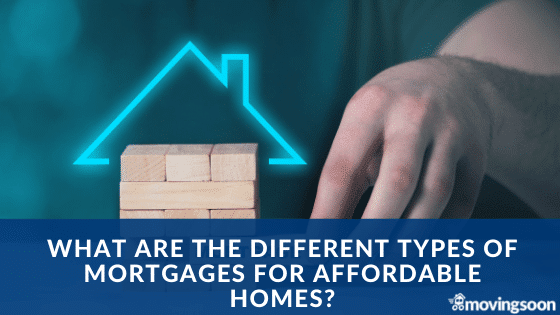So what are the different types of mortgages for affordable homes? This ultimately depends on which type of affordable home you are going for.
Shared ownership mortgage for first time buyers, those in a relationship breakdown and downsizers
Shared ownership mortgages are typically aimed at first time buyers, those downsizing and those who are starting again due to a relationship breakdown.
The eligibility for shared ownership is if
- your household earns £80,000 a year or less (£90,000 in London)
- you cannot afford all of the deposit and mortgage payments for a home that meets your needs
One of the following must also be true:
- you’re a first-time buyer
- you used to own a home, but cannot afford to buy one now
- you own a home and want to move but cannot afford a new home suitable for your needs
- you’re forming a new household – for example, after a relationship breakdown
- you’re an existing shared owner and want to move
First time buyer shared ownership
Shared ownership is a scheme that is aimed at first time buyers. This is because it is an affordable way to get on the housing ladder. It doesn’t require a huge amount of deposit. The monthly costs can be low depending on your share amount. If you have found a house you love but if it was on the open market wouldn’t be able to afford, it can give you the chance to be able to ‘staircase‘ up to 100%. This would be beneficial to those progressing in their career but are not at the level they would want.
Relationship breakdown shared ownership
It is also aimed at those in the midst of a relationship breakdown. This is because of the same reasons as FTB, because you do not need a lot of money. If a relationship has broke down suddenly, you may not have had a lot of money saved. Shared ownership enables you to be able to move homes for a fraction of the cost of outright sale.
For example, if the property value was £150,000 and you are buying a 50% share at £75,000, the minimum deposit would be 5% of that £75,000, so £3,750. Whereas if you were buying a property outright on a standard purchase at £150,000 your 5% deposit of the whole £150,00 would be £7,500. You might be able to buy a larger share of the house when you can afford it, this is called staircasing.
If you are downsizing to a shared ownership property, you will want to look at a shared ownership mortgage. A shared ownership mortgage is where the mortgage amount is based only against the share of the property you are buying. This means that your deposit will be much less. If you are a first time buyer, you can apply for a shared ownership mortgage or if you are over 55, you can apply for a shared ownership mortgage. This is called Older Person’s Shared Ownership (OPSO).
There are different providers who offer mortgages for a Shared Ownership homes. Most high street lenders offer shared ownership mortgages. You can compare shared ownership mortgage rates here
Can I get a joint mortgage for help to buy or shared ownership properties?
This is suitable if you are buying a property with someone else. This could be either a partner, friend or family member. With both sets of deposits and income you may be able to take out a larger mortgage loan and own a home together.
A joint mortgage could mean you and the other person own equal parts of the property – joint tenants – or you might own a share of the home – tenants in common – which may be different amounts.
You should take legal advice before taking out a joint mortgage so all areas are covered.
What is a Guarantor Mortgage and can I use it for help to buy or shared ownership?
A guarantor mortgage is a mortgage that is taken out on the premise that if you miss any payments, someone else will pay them for you. This is usually a parent or close family member. This could help you take out a larger mortgage for your first home.
Some lenders may not want to over complicate the process for buying a home via the help to buy or shared ownership route.
You should get legal advice before asking someone to be a guarantor (or becoming a guarantor) as although their name will not be on the mortgage, there may be some complications.
Please note: MovingSoon is not authorised to give financial advice; the information and opinions provided in these articles are not intended to be financial advice and should not be relied upon when making financial decisions. Please seek advice from a specialist mortgage provider.

